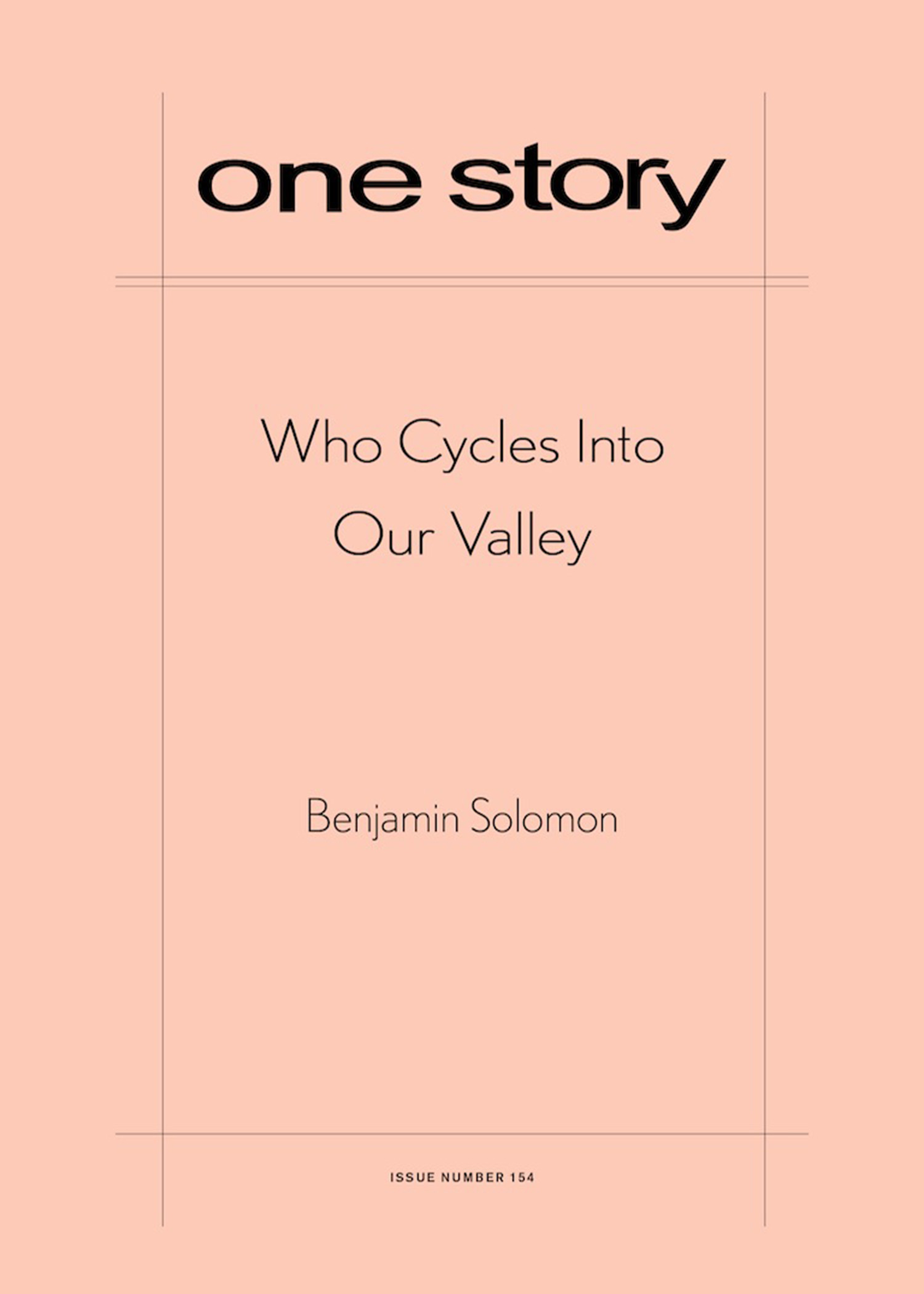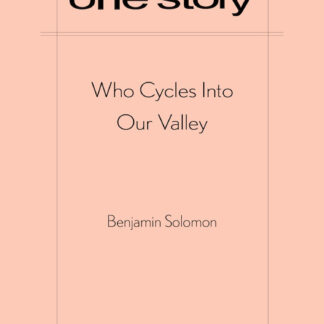
Who Cycles Into Our Valley
$2.50
30 in stock
Excerpt
The countryside in this part of Spain is one of undulating hills, deep amber with stubbled and unruly grass. There’s a single asphalt road, weathered to pale gray, that wanders here as if lost or uncertain, dropping into narrow valleys crowded with adolescent winter corn and climbing to vistas of scattered oak trees, and from a distance these trees look like heads of bulbous broccoli, though up close they grow gnarly and formidable, and their tangled branches enclose a darkness uncanny in the full light of afternoon. Visitors here are few, mostly itinerant storks who pass through in pairs, stopping briefly at brooks to drink, then moving along to towns where they will roost atop steeples to guard the citizens of this Catholic country against malevolent winds. And though the nights this time of year often dip below freezing, the days if sunny are warm. Today the sky is a glassy blue, whitening at the horizon so it looks like wispy clouds cover the road ahead, and yet these clouds seem to dissolve as the father and son pedal their tandem bicycle along the meandering road, leaving the sky infallibly blank above them. The faces of the cyclists at this moment are splotchy and red. Their garish cycling clothes are ringed with sweat. The chain on their tandem squeaks as they strain to push themselves over the gentle crest of another hilltop, where, for just a moment as they stop pedaling and begin to coast, they lift their heads and take in the countryside around them.
Benjamin Solomon
Benjamin Solomon’s work has appeared in Diagram, The Southeast Review, Boneshaker, Best Modern Voices and elsewhere. He is a founding editor of The Open Face Sandwich, a biennial anthology of uncommon prose. He lives in Atlanta where he is completing an MFA at Georgia State University, and is at work on a novel.
Q&A by Hannah Tinti
- HT: Where did the idea for this story come from?
- BS: The seed of this story is cycling, and by that I mean the physical act of riding a bicycle through a given terrain. I was riding bikes a lot when I started this piece, and I wanted to evoke the way physical activity melds with thoughts and memory and landscape to create a particular emotional state. I also wanted to write a father-son story.
- HT: What was the most challenging aspect of writing this story?
- BS: Figuring out that nothing needed to happen. I wrote drafts and drafts of this story in which different things happened—everything from flat tires, to long and tense conversations, to a major crash that kills both bikers. All of that had to go when I finally realized that a central feature of long-distance cycling is silence and the opportunity for memory and rumination that it provides. Once I made the choice to sacrifice surface plot for memory and introspection, the current story began to take shape.
- HT: The tandem bicycle is a great metaphor for the journey this father and son are taking together. Have you ever ridden one? And what made you choose it for this story?
- BS: I have ridden one, once, with my grandfather in a subdivision, but not for an extended period of time or over a great distance. The tandem came into this story late, but it made perfect sense to me because it created a physical interdependence between the father and son that mirrored their emotional connection. Also tandems are just cool. If triple- or quadruple-seat bikes were commonplace I might have been tempted to include other characters from this story on the ride.
- HT: Was it difficult to keep the balance between the two points of view in this piece?
- BS: Yes. I’d write for a while and then think the story was becoming too much about the son. Then I’d write some more and worry I was focusing too much on the father. I wanted the omniscience in this story to split its attention evenly between the characters, and I had to struggle for that balance.
- HT: Both men have found homes in other countries—Spain and India. Can you talk a bit about the use of setting, and why you chose to move these men out of their “natural” habitats?
- BS: I think that in the same way that the tandem bicycle gave me a physical vehicle to express the characters’ interdependence, the expatriate identities helped me express something about their shared loneliness and sense of disconnectedness from their loved ones. I didn’t set out to create that metaphor, but when it popped up I think it felt appropriate to the emotions that were working in the piece.
- HT: The plot is simple—the men pedal up a hill and then go down a hill. But the story echoes the mythological classics of father/son tales—Oedipus, even Star Wars—where the son replaces the father. Was this your intention?
- BS: Not for a long time. But I think that the more I began to strip away plot points and surface action, the more I was able to focus on the particular resonance and interplay of memories that naturally led to some of the fundamental and classic themes of the father and son experience.
- HT: Can you tell us a little about the title?
- BS: The title is a residual element from an earlier draft, in which the father and son crash, die, and become ghosts who hover over a single small valley in Spain, and sort of haunt all the cyclists who pass through after them. It stuck, I think, because it helped me reach one of the questions that come up at end of the story.
- HT: How long did it take you to complete this story?
- BS: A very long time. Six years and fifty-five distinct drafts. An earlier title for this story was simply “Drafting,” because I just kept writing and rewriting it. If One Story hadn’t accepted it, it probably would have gone on another six years.
- HT: What are you working on now?
- BS: A novel about a libidinous 1940s traveling cattle feed salesman.
- HT: What is the best bit of advice about writing you have ever received?
- BS: I can’t remember who to attribute this to, but years ago I read about something called the “cool stuff clause.” The idea was that even if an object, idea, or image seems out of place or distracting in a story, a writer should consider invoking the “cool stuff clause” to keep it in, if it’s compelling enough. You never know if a seemingly random detail, scene, or anecdote within a larger story will suddenly gain resonance and become crucial. My strongest writing has emerged from material that couldn’t immediately justify its presence in what I was working on. That said, it’s important to be merciless also. Just save your drafts.
